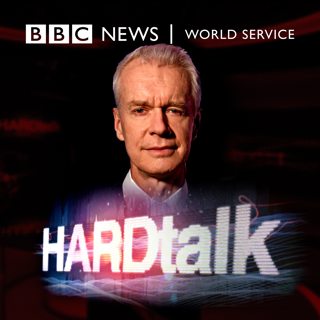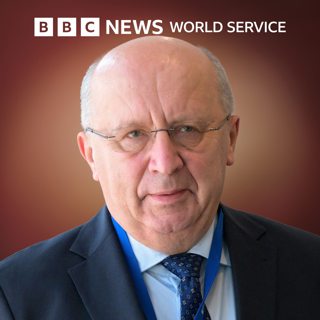
Chris Murphy: Is Kamala Harris a candidate for change?
Stephen Sackur is in Washington DC to speak to Democratic Party Senator Chris Murphy. In the final days of an eye-wateringly close presidential election campaign, how can Vice President Kamala Harris convince Americans that she and the Democrats stand for change rather than business as usual?
28 Loka 202422min

John Bolton: Is America too divided to offer global leadership?
Stephen Sackur is in Washington DC to speak to Donald Trump’s former national security adviser John Bolton. With the election looming, Bolton calls his former boss a danger to America. But he won’t back Kamala Harris either. Is America too divided to offer global leadership?
23 Loka 202422min

Frank Skinner: What unites his many sides?
Stephen Sackur speaks to stand-up comedian, and broadcaster Frank Skinner, who also happens to be a writer on poetry, religion and much more. Football and sex were, and are, the staples of much of his humour, but he’s never been a one-trick pony. What unites his many facets?
21 Loka 202422min

Seyed Hossein Mousavian: How vulnerable is Iran?
Stephen Sackur speaks to former Iranian nuclear negotiator Seyed Hossein Mousavian. Now in exile in the US, he is an advocate for dialogue between Iran and the West. With Israel poised to strike, having already delivered severe blows to Tehran, how vulnerable is Iran?
17 Loka 202422min

Ali Abbasi: Is censorship a growing cross-cultural problem?
Stephen Sackur speaks to the Iranian-Danish film director Ali Abbasi. His new movie The Apprentice, about Donald Trump’s early years in business, has enraged team Trump. He’s also made powerful enemies inside Iran. Is censorship a growing cross-cultural problem?
16 Loka 202422min

Marietje Schaake: Is Silicon Valley too powerful?
Stephen Sackur speaks to the former MEP Marietje Schaake, who is now a cyber expert at Stanford University. Her book, The Tech Coup, suggests the world’s failure to properly regulate digital technology threatens individual rights and democratic freedom worldwide. Is it too late to change course?
14 Loka 202422min

Danny Danon: Can force alone deliver security for Israel?
Stephen Sackur speaks to Israel’s ambassador at the UN, Danny Danon. Israel is now fighting a multi-front war, intent on delivering its enemies in Gaza, Lebanon and Iran a series of crushing blows. But can force alone deliver Israel the security it craves?
10 Loka 202422min

Tamir Pardo: Does Israel's greatest threat come from within?
Stephen Sackur speaks to Tamir Pardo, former director of the Israeli intelligence agency Mossad. He was appointed by Benjamin Netanyahu but now he’s a fierce critic of the Israeli Prime Minister. When he says the greatest threat to Israel’s future comes from within, what does he mean?
9 Loka 202422min






















